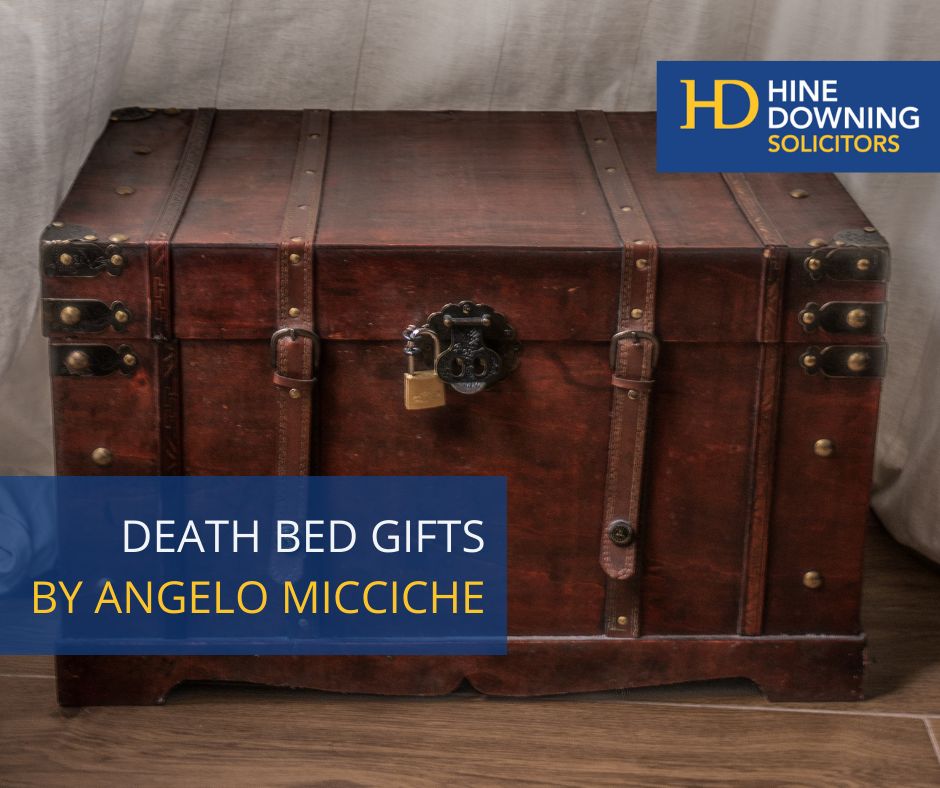Death Bed Gifts

Written by Angelo Micciche TEP, CTAPS, Solicitor at Hine Downing
When people leave their earthly possessions when they die, the estates are normally passed on through a valid Will, which follows a stringent procedure or, if no Will is made, by what is known as the intestacy rules.
Occasionally, however, a gift can be made where the maker of the gift is mindful of their imminent death, in circumstances where, having made the gift the maker of the gift dies at the time and in the way they had contemplated when making the gift and they had not changed their mind about the gift before they died.
When the gift was made, the means by which it was controlled by the maker of the gift has to be handed over to the recipient, such as deeds to land or keys to a property, to a jewellery box or to a deposit box. This type of “death bed gift”, if these precise methods can be proven to have been used, can be established using principles that go back to roman times and so it has the Latin name “donatio mortis causa”, or DMC if you prefer.
This method of passing on a gift of this type may fail if it cannot be proven that at the time of the gift, the actual death of the maker and its time and circumstances were not as contemplated by the maker at the time they made the gift. This would be the case if the maker of the gift, when making it, expected to die of a given disease within 6 months, but in fact died when he was struck by a bus 2 years later. It could also fail if the means of control of the gift were not handed over at the time of making the gift.
There may be circumstances where a beneficiary of such a gift may have to prove that it was made and they are entitled to the relevant asset, so they will need specialist advice.
Please call Angelo Micciche on 01326 316655 for help with wills, trusts and probate.




